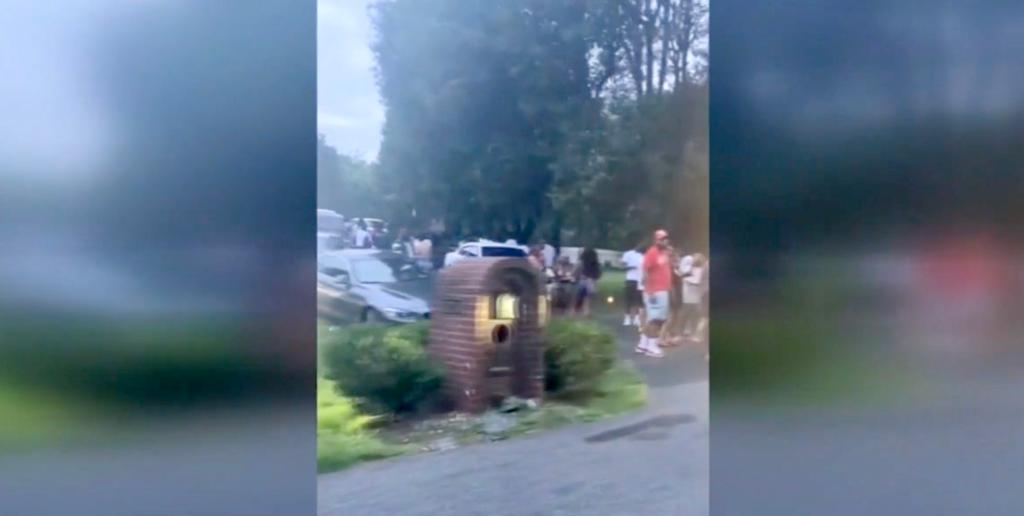Residents of a Maryland neighborhood were outraged after a rowdy pool party brought hundreds of revelers to their street for an extended booze fest. The party, advertised on social media as a “wet dreams” themed event, took place at Stapleford Hall, a luxurious property listed on rental platforms like Vrbo and AirBnB. Local officials estimated that at least 1,000 people may have attended the party, causing disturbance and concern among residents.
Concerned neighbors described the party as beyond acceptable noise levels, with disruptive music and fireworks causing vibrations in the area. Despite the owner notifying neighbors about the event and promising security measures such as off-duty cops and shuttle buses, the party spiraled out of control. The homeowner mentioned plans to host more large pool parties in the future to cover legal costs, prompting backlash and violation notices from local authorities.
The unauthorized commercial use of Stapleford Hall for profit violated several local policies, resulting in violation notices being issued by the Department of Permitting Services and the Department of Health and Human Services. Public records showed that the property is owned by Keith and Elizabeth Burgess, although Keith stated that he was not involved in the party and filed for an emergency injunction to prevent future events. The situation sparked a debate among neighbors about the ethics of renting out properties and the responsibility of owners in maintaining the neighborhood’s peace and security.
The chaos caused by the pool party, with reports of inappropriate behavior and excessive noise, led to heightened tensions among residents in the area. The divisive nature of the event and the lack of accountability from the property owners raised questions about the impact of such events on local communities. Despite efforts to control the situation and prevent further disturbances, residents remained wary of future events and the potential consequences of unauthorized commercial activities in residential neighborhoods.
As details of the party and its aftermath became public knowledge, the owners of Stapleford Hall faced scrutiny and legal repercussions for their involvement in the unauthorized event. With the filing of an emergency injunction and violation notices from local authorities, the Burgess couple faced backlash and criticism from the community. The incident highlighted the importance of respecting local regulations and the impact of hosting large events on residential neighborhoods, leading to a reevaluation of policies and responsibilities for property owners in maintaining community harmony.
In conclusion, the raucous pool party at Stapleford Hall in Maryland underscored the challenges and controversies surrounding unauthorized commercial activities in residential neighborhoods. The disturbance caused by the event raised concerns among residents, prompting legal actions and debates about property rights and community responsibilities. The aftermath of the party highlighted the need for clearer regulations and enforcement mechanisms to prevent similar incidents in the future. Ultimately, the incident served as a cautionary tale about the consequences of disregarding neighborhood norms and the importance of balancing individual property rights with community well-being.














